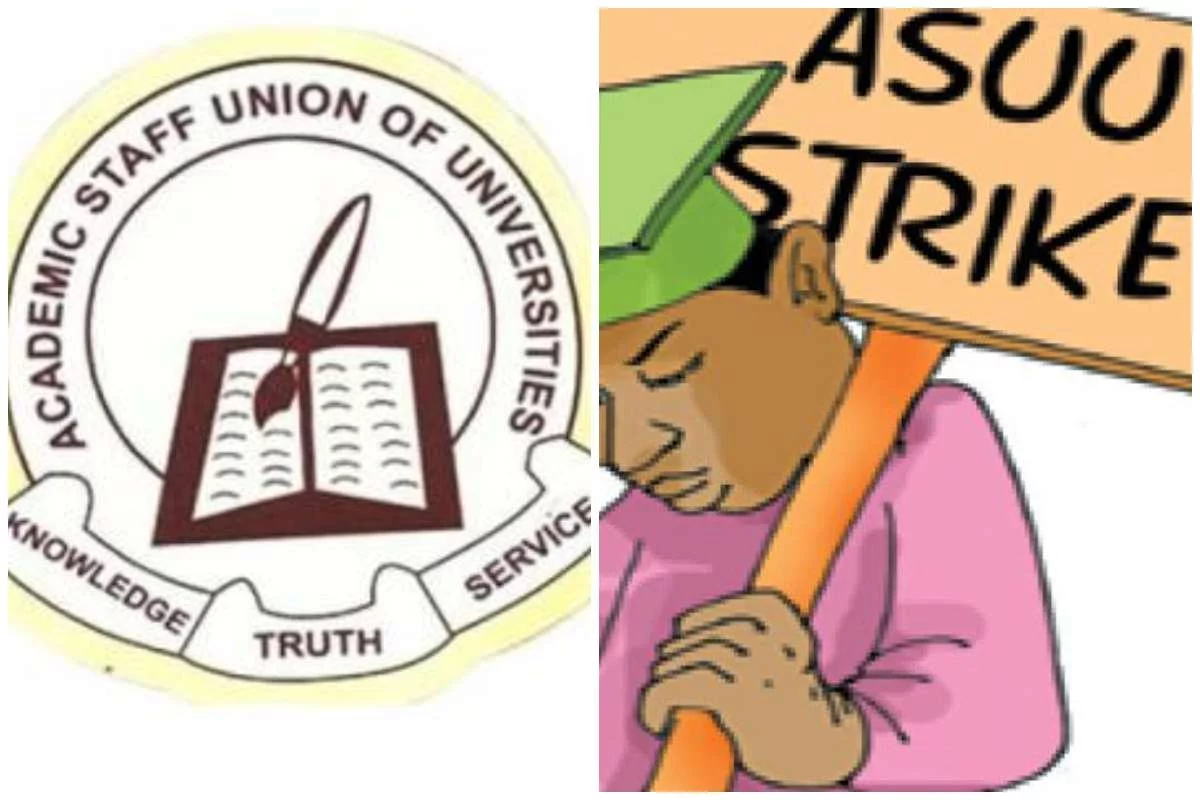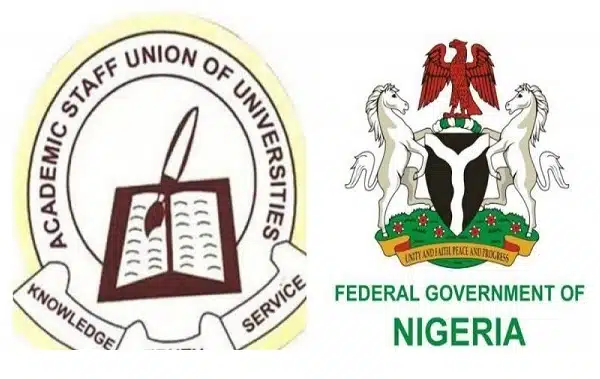The Academic Staff Union of Universities (ASUU) has declared that it will commence an indefinite nationwide strike this Friday, plunging the Nigerian higher-education system into yet another season of uncertainty. The union’s announcement comes after weeks of stalled negotiations, unmet promises, and growing frustration over what it describes as the federal government’s “selective implementation” of key agreements. With academic calendars already fragile, the looming shutdown signals a deepening crisis that threatens the stability of public universities and the future of millions of students.
A Crisis Long in the Making
The latest conflict did not erupt overnight. ASUU had suspended an earlier warning strike to give the government ample time to address long-standing issues regarding welfare, university funding, salary arrears, and working conditions. The union provided a one-month window—expected to serve as a period of sincere dialogue and implementation.
Now, as that deadline expires with no substantive progress, ASUU insists it cannot continue to operate under what it calls “unfulfilled promises” and “persistent neglect.”
Union leaders across major zones report that key elements of the previous agreements remain untouched. While government officials claim that funds have been released to universities for revitalization and salary enhancements, ASUU maintains that these claims are not reflected in the lived experience of academic staff. The resulting distrust has widened the gulf between both sides.
Why ASUU Says It Can’t Back Down
At the heart of ASUU’s stance is a belief that Nigeria’s public university system is undergoing severe decay. Senior lecturers continue to leave the country in search of better opportunities, laboratories remain outdated, classrooms are overcrowded, and salaries for academic staff no longer match the cost of living or the critical demands of the profession.
The union argues that addressing these issues is not only a matter of staff welfare but an urgent national imperative. Without structural reforms, Nigeria’s universities cannot compete globally, attract research grants, foster innovation, or produce highly skilled graduates capable of driving national development.
ASUU insists that the situation has reached a tipping point. The promised wage award, revitalization funding, and backlog of arrears have either not been delivered or were implemented in ways the union describes as opaque and inconsistent. The result is widespread dissatisfaction, eroding morale across campuses nationwide.
Mounting Tensions With Government Officials
Several recent exchanges between ASUU and the Ministry of Education have heightened the tension. While education officials maintain they have demonstrated goodwill, ASUU accuses the ministry of presenting misleading information to the public about what has or has not been implemented.
Statements credited to government figures claiming that significant funds had reached the universities were dismissed by ASUU as inaccurate, with the union asserting that many institutions are yet to see any tangible evidence of such releases.
These competing narratives have fueled public confusion—leaving students, parents, and stakeholders uncertain about the true state of affairs. What remains clear, however, is that communication between the two parties has broken down significantly, and mistrust is now at an all-time high.
Growing Frustration Across Campuses
Across Nigeria’s universities, tension is palpable. Students preparing for examinations fear they may be stranded midway through their academic year. Postgraduate students working on time-sensitive research projects worry that the disruption may jeopardize their work.
Parents express concern about prolonged financial pressure, especially those who must continue to pay rent, feeding, and other expenses even during university shutdowns.
For many academic staff members, the frustration stems from more than just salaries. Lecturers complain about inadequate research support, outdated teaching infrastructure, dilapidated hostels, and a system they believe no longer reflects global standards.
This environment, they argue, cannot attract or retain world-class scholars—and Nigeria risks losing its intellectual backbone unless urgent steps are taken.
Implications for Nigeria’s Higher-Education Sector
If ASUU proceeds with the indefinite strike, academic activities across all federal universities will grind to a halt. Teaching, research, administrative work, and key academic processes such as examinations and project defenses would be suspended indefinitely.
This disruption carries wide-ranging consequences.
Graduation timelines may be pushed forward by months. Students awaiting mobilization for the National Youth Service Corps (NYSC) could face delays. Research collaborations with international partners may be jeopardized, especially those tied to strict timelines and funding cycles.
There is also a long-term reputational cost. Repeated disruptions weaken Nigeria’s standing in global university rankings, discourage foreign partnerships, and threaten the pipeline of innovation needed for economic growth.
The Looming Threat of Brain Drain
One of the most alarming consequences of the current tension is the continued exodus of academic staff. ASUU has repeatedly warned that poor remuneration and working conditions are driving lecturers away at an unprecedented rate.
Senior academics—many with decades of research expertise—are leaving the system in pursuit of better working environments abroad.
This brain drain has devastating effects. It leaves universities understaffed, burdens remaining lecturers with heavier workloads, and weakens the overall quality of teaching and research.
ASUU insists that the strike is as much about saving the profession and universities themselves as it is about salaries and arrears.
Students and Parents Caught in the Middle
While both ASUU and the government present strong arguments, students remain the most vulnerable stakeholders. For many, each strike extends their stay in the university far beyond anticipated timelines.
The financial burden of extended rent, transportation, feeding, and other expenses falls squarely on families already grappling with rising living costs.
Some students fear losing study opportunities abroad due to uncertainties around their academic transcripts or graduation dates. Others worry about losing motivation, with prolonged academic inactivity contributing to frustration and declining academic performance.
What Happens Next?
With the strike set to begin on Friday, the next 24 to 48 hours will be critical. The government may attempt last-minute negotiations to avert the shutdown. ASUU may stand its ground unless concrete commitments are presented.
Observers note that only sincere dialogue—not rushed promises—can resolve the impasse.
If no agreement is reached, Nigeria’s public universities will face yet another indefinite closure, deepening the sector’s instability and raising urgent questions about the future of higher education in the country.



